Great Personalities
Here are some of the eminent researchers globally known and remembered for their research on tropical diseases, Nobel laureates and internationally respected researchers those were associated with School of Tropical Medicine. Please click on the icon before each of the great personalities to know more on them.
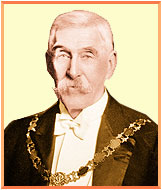
Sir Leonard Rogers
Sir Leonard Rogers FRS (1868-1962) was a founder member of the Royal Society of Tropical Medicine and Hygiene, and its President from 1933 to 1935. Rogers had a wide range of interests in tropical medicine, from the study of kala-azar epidemics to sea snake venoms, but is best known for pioneering the treatment of cholera with hypertonic saline, which has saved a multitude of lives. Rogers was one of the pioneers in setting up the School of Tropical Medicine in India. He was president of the 1919 session of the Indian Science Congress.
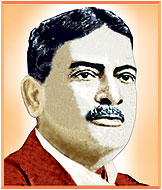
Sir UN Brahmachari
Sir Upendranath Brahmachari (19 December 1873 - 6 February 1946) was an Indian scientist and a leading medical practitioner of his time. He synthesized Urea Stibamine (carbostibamide) in 1922 and determined that it was an effective substitute for the other antimony-containing compounds in the treatment of Kala-azar (Visceral leishmaniasis) which is caused by a protozoon, Leishmania donovani. His discovery led to the saving of millions of lives in India. The achievement of Brahmachari was a milestone in successful application of science in medical treatment in the years before arrival of antibiotics, when there were few specific drugs, except quinine for malaria, iron for anaemia, digitalis for heart diseases and arsenic for syphilis.
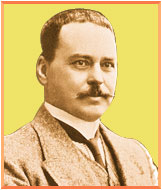
Sir Ronald Ross KCB FRS
Sir Ronald Ross KCB FRS (13 May 1857 - 16 September 1932) was a British doctor who received the Nobel Prize for Physiology or Medicine in 1902 for his work on malaria. His discovery of the malarial parasite in the gastrointestinal tract of the Anopheles mosquito led to the realization that malaria was transmitted by Anopheles, and laid the foundation for combating the disease.

Lt. Col. B Knowles
Lt. Col. B Knowles (13 was an eminent Protozoologist, researched in School of Tropical Medicine during 1930s. His in-depth research in Kala-azar and Malaria medicine. His discovery of aldehyde test and efficacy of different antimony salts showed a new horizon in treating these diseases in the later days.
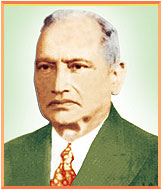
Sir R N Chopra
Col. Ram Nath Chopra(August 17, 1882 - June 13, 1973) Professor Chopra was the first to establish a centre of study and research in pharmacology in India, at the School of Tropical Medicine. Chopra's pet discipline was systematic studies of indigenous drugs. Chopra and associates carried out a pioneering work on Rauwolfia serpentina, a plant that gained prominence two decades later as a source of reserpine. In 1933 He discovered that alkaloid obtained from the plant on experimental studies in animals showed central depressant properties and lowered the blood pressure.
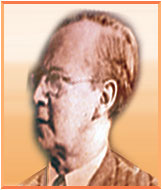
Sir LE Napier
Sir LE Napier (1888 - 1957) The great researcher on Kala-azar was associated with STM and was Director from 1941 to 1943. Napier was author of many research and text book on Kalaazar and Malaria. His books and researches showed new aspects of the diseases like Malaria, Filariasis, Yellow Fever and Leishmaniasis. He was made a Fellow of the Royal College of Physicians in 1940.

Prof JB Chatterjee
Jyoti Bhusan Chatterjea (1919–1972) was an Indian hematologist and director of the Calcutta School of Tropical Medicine. His research focused on hematological aspects of tropical diseases and he made significant contributions to understanding hereditary disorders like Hemoglobin E/β-thalassemia. Chatterjea's work on human red blood cells led to the discovery of Hemoglobin E in Bengali people. He published numerous papers, received prestigious awards including the Shanti Swarup Bhatnagar Prize, and held leadership roles in medical organizations. Chatterjea's legacy encompasses his vital research and contributions to the fields of hematology and tropical medicine. The J B Chtterjea Memorial Oration is held each year in the this institute in his honor.
